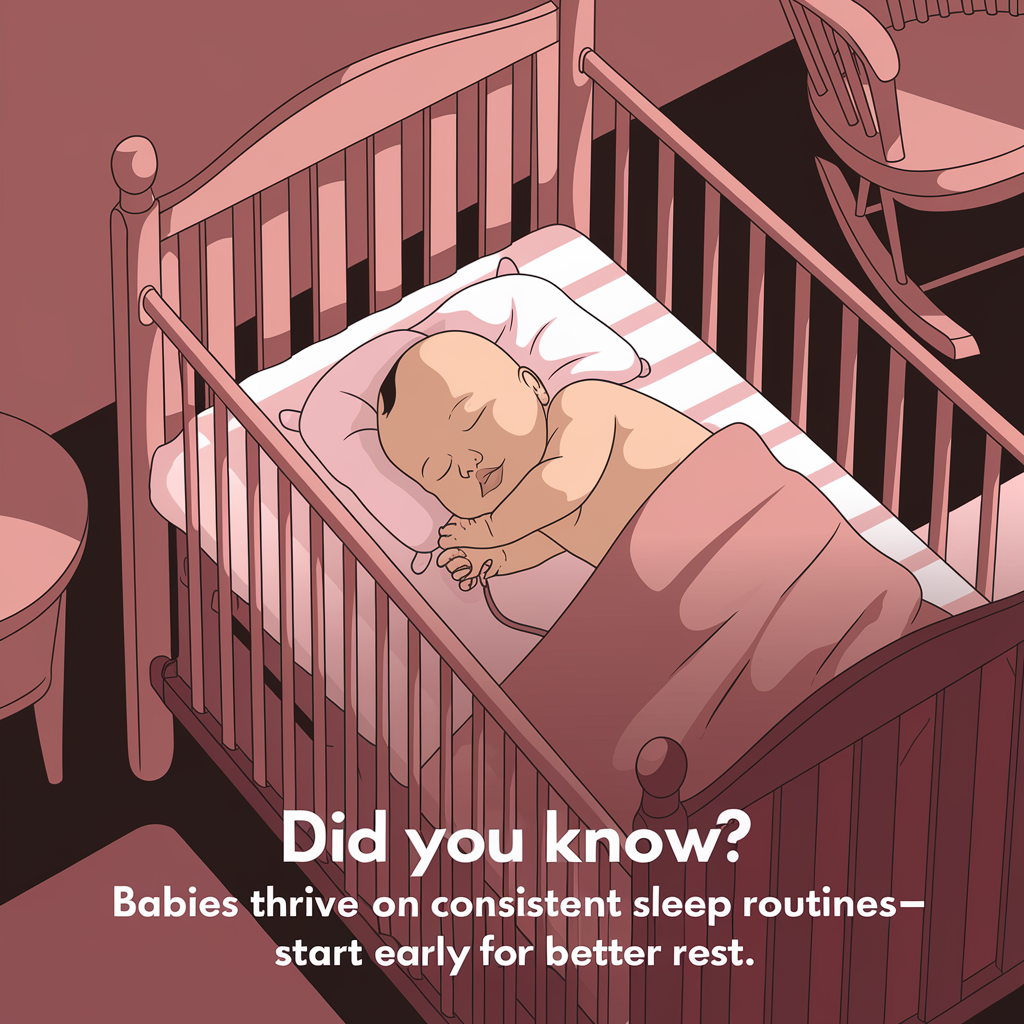
One of the most challenging aspects of parenthood is navigating sleep routines for your baby. Newborns and infants require adequate sleep for their growth and development, while sleep deprivation can take a toll on parents. Establishing healthy sleep habits for your baby not only promotes their well-being but also allows you to get the rest you need. In this article, we will explore practical sleep solutions for new parents, helping you establish a sleep routine that supports your baby’s sleep and ensures a more peaceful night for everyone involved.

- Create a Consistent Bedtime Routine: Establishing a consistent bedtime routine helps signal to your baby that it’s time to wind down and prepare for sleep. Keep the routine simple and soothing, incorporating activities like a warm bath, gentle massage, and quiet playtime. Follow a consistent sequence of events each night to help your baby associate the routine with sleep.
- Set a Sleep-Friendly Environment: Create a sleep-friendly environment in your baby’s room to promote restful sleep. Ensure the room is dark, quiet, and at a comfortable temperature. Consider using blackout curtains, white noise machines, or soft music to create a soothing ambiance that encourages relaxation and sleep.
- Encourage Daytime Naps: Establishing a regular nap schedule during the day helps prevent overtiredness and promotes better nighttime sleep. Pay attention to your baby’s sleep cues and create a nap routine that suits their individual needs. Offer a calm and quiet space for naps, and consider using swaddles, sleep sacks, or cozy blankets to create a comfortable sleep environment.
- Differentiate Night and Day: Help your baby understand the difference between night and day by exposing them to natural light and engaging in stimulating activities during the day. Keep the environment bright and engage in interactive playtime. In the evening, create a calm and quiet atmosphere to signal that it’s time to wind down for sleep.
- Practice Safe Sleep Guidelines: Ensure your baby sleeps in a safe environment by following safe sleep guidelines. Place your baby on their back to sleep, on a firm and flat surface, in a crib or bassinet. Keep the sleep area free from loose bedding, stuffed animals, and other potential hazards. This reduces the risk of Sudden Infant Death Syndrome (SIDS) and creates a safe sleep space for your baby.
- Develop Self-Soothing Techniques: Encourage your baby to develop self-soothing techniques to help them fall asleep and back to sleep independently. Gradually introduce soothing strategies like a pacifier, gentle rocking, or a soothing lullaby before placing them in their crib or bassinet. This helps your baby learn to self-soothe and settle themselves to sleep.
- Be Flexible and Patient: Remember that sleep patterns and needs vary among babies. Be flexible and patient as you navigate the ups and downs of establishing healthy sleep habits. It may take time for your baby to adjust to a new routine, and there may be setbacks along the way. Stay consistent, offer comfort when needed, and trust that with time, your baby will develop better sleep habits.

Establishing healthy sleep habits for your baby is a gradual process that requires consistency and patience. By creating a consistent bedtime routine, setting a sleep-friendly environment, encouraging daytime naps, differentiating night and day, practicing safe sleep guidelines, developing self-soothing techniques, and maintaining flexibility and patience, you can promote better sleep for your baby and yourself as new parents. Remember, every baby is unique, and finding what works best for your family may require some experimentation and adjustments.

As an Amazon Associate we earn from qualifying purchases through some links in our articles.



